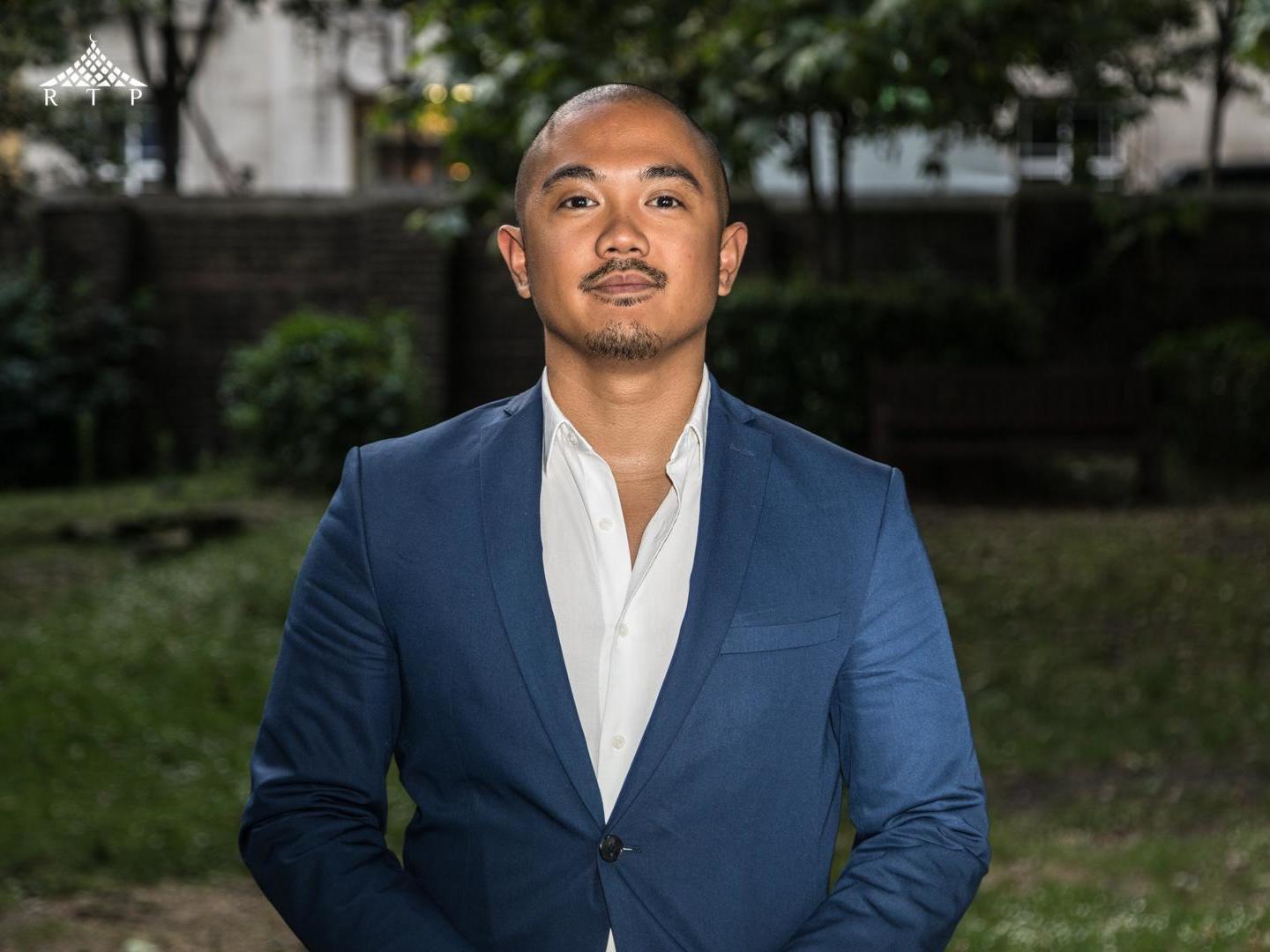The journey from carrying a knife in east London to the Davos global economic forum
‘Just because you go to Davos does not make you a Davos person’

He was born and raised in east London, and grew up carrying a knife for protection – but within a decade Alvin Carpio was rubbing shoulders with the most powerful people on the planet at the World Economic Forum’s annual meeting at Davos.
And, after speaking with former United Nations secretary-general Kofi Annan and interviewing Sebastian Kurz, now Austria’s chancellor, the 30-year-old is determined to change the way the world is run to ensure those he grew up alongside have their voices heard on the international stage.
His mother, Genevey Ladaban, was left to raise and provide for Carpio and his sister. He says he remembers how much of a struggle it was but his mother, who worked as a dealer in a casino, did all she could to ensure they were OK.
“We were lucky enough not to be in situations where we were threatened with homelessness or anything like that,” he says.
While in his teens, it was common to have a weapon “to be the bigger man” and “for protection”, he adds.
Although he never used it, he says he was aware that you are more likely to be stabbed when carrying a knife.
He took the decision to stop carrying a weapon when a younger cousin asked where he could get hold of one.
Realising his sense of duty he says he wanted to be a “role model” and his first job, working in Harrods selling Christmas decorations, was the first step on that journey.
Then studying at SOAS, Carpio says he became more politically active and driven to take action over injustice, campaigning for human rights for the Philippines and participating in student protests.
“SOAS is a very politically kind of minded campus, protests every single day and so that was a lot of my political education – the books that I read, the classes we would do and the workshops we did,” he says.
It was his work as an anti-poverty campaigner that saw him invited to attend the Davos summit in 2016.
“There was definitely a sense of imposter syndrome, in the sense of ‘Am I really supposed to be here?’” the 31-year-old says.
“I was just like, ‘look, I am here for a reason,’ and my mentors said, ‘this is your chance to have a direct say’.”
At Davos, Carpio, who also featured on the Forbes 30 under 30 list in 2017, was given an all-access pass to network with some of the leading figures on the global stage to discuss his life experiences.
“It was a really exciting opportunity, I made a lot of friends and it made me feel a lot more confident in my ability to make a difference,” he says.
Carpio’s work initially focused on gangs and youth crime and he lobbied the government to reform policy to improve the opportunities available to young people.
He then started work for the Joseph Rowntree Foundation, where he helped those who are least likely to get work make their way into the labour market.
It is far cry from what he witnessed at Davos. He says that “you see the helicopters flying around and nice watches” but he is keen to point out that “just because you go to Davos, does not make you a Davos person”.
But it was at Davos, he says, that he got a clear insight into “the way the world is run”.
It gave him a sense of purpose and he described what he saw as “undemocratic”, noting that “people at Davos are literally carving up the world in their interests”.
“At worst it makes you angry, at best it makes you want to do something about it,” he says. “So a lot of the work I’m trying to do now is to think about how we democratise governance, how we bring issues, values and opinions which are unpopular with the people who actually have the power to them.”
“How do you bring the interests of someone from Plaistow or from Hackney or the Philippines to people who live in gated communities and are flying in helicopters?”
His work now focuses on doing exactly this and his latest venture, United Citizens , is an initiative which looks to ensure that those in powerful positions listen to what ordinary people think.
“I’ve never voted for someone who attends Davos or where a lot of international deals are done,” he says. “I’ve never voted for someone in the United Nations.
“So how do we democratise the way the world is run to ensure power lies with the people? That’s our question.”
His idea is to raise awareness and work with governments and businesses, getting average people involved in the decision-making process to shape the world.
Carpio says it is a decades-long project but hopes that if United Citizens manages to make a difference and alters the way global governance works, “perhaps many of the issues that face humanity now will be slightly easier to deal with, and the future is one that is shaped by all, leaving nobody behind”.
Join our commenting forum
Join thought-provoking conversations, follow other Independent readers and see their replies
Comments
Bookmark popover
Removed from bookmarks